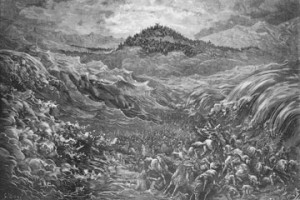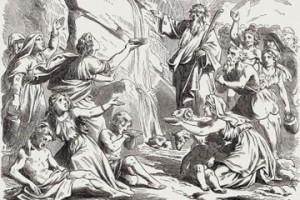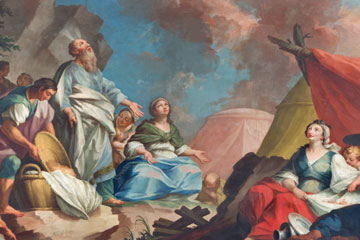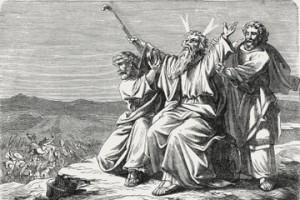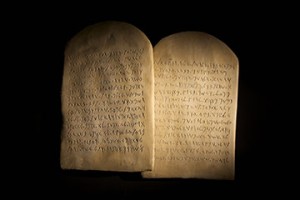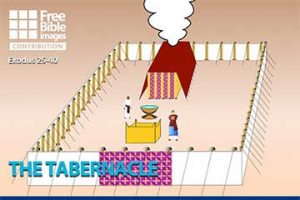Read the story in Exodus 1-2
What Do Egypt and Canaan Portray in Life?
Canaan illustrates spiritual values and goals. Egypt illustrates natural things in the world — our home, clothing, schedules and so on.
Canaan is the ideal of love to the Lord and love to the neighbor. It is the love of family, the dream of a life of use and service to others. Canaan portrays the spiritual promises the Lord leads us to in the truths of His Word. The Lord calls us to go to Canaan, just as He called the people of Israel to go there in the opening chapters of the Word. The Lord calls us to fulfill spiritual goals and dreams in our lives; He calls us to become spiritually reborn.
The journey from Canaan to Egypt is a journey we often make in our lives. The Lord touches our hearts with a dream, and a hunger for the fulfillment of that dream. We journey south, from our state of inspiration in Canaan, to a state of learning and preparation in Egypt. Egypt is a cognitive state of mind, a time of learning and preparation. Often the inspiration we felt in Canaan is temporarily left behind as we set our mind to the pursuits of study and learning in Egypt. A teacher with the Canaan vision of helping children to learn may find that love distant as he sojourns in the Egypt of grading homework and dealing with discipline in the classroom. But the intention is to return to Canaan after gathering wealth during a temporary stay in Egypt. We are called to return to the promised land of Canaan, to our spiritual ideals, with the wealth and provisions of Egypt. For it is in Canaan that our lives are made whole.
For Us, the Story of the Exodus Begins with Spiritual Captivity
A time when the dreams of Canaan have been forgotten and we are immersed in the things of the world. The power of the hells, entering our minds through this lower level of natural appearance, can be so subtle in their rule that even our religious faith, in a sense, "sells itself" to Pharaoh. The hells say to us, "Yes, explore spirituality, go to church, but just don’t get any ideas that you are going to change your life."
Remaining in Egypt, Content with the Things of This World Alone, Has Its Pleasures and Comforts.
This is especially true when we are hardened and cynical about heavenly goals. The situation is complicated by the fact that we each have a spiritual history. We are spiritual beings. Our inner spiritual values can be compared to Moses’ relationship to his people and his homeland. We have nagging thoughts which tell us that those values could still be alive, that we should reach out and fight for them, that there are higher things to live for. On the other hand there is a fear of death. Like Moses, we can live under the fear that any major changes in our lives will result in failure and even in the death of those worldly things. It seems better to do nothing than to risk failure, or so Pharaoh convinces us.
Excerpted from Journey to Freedom spiritual growth program — Week 1





